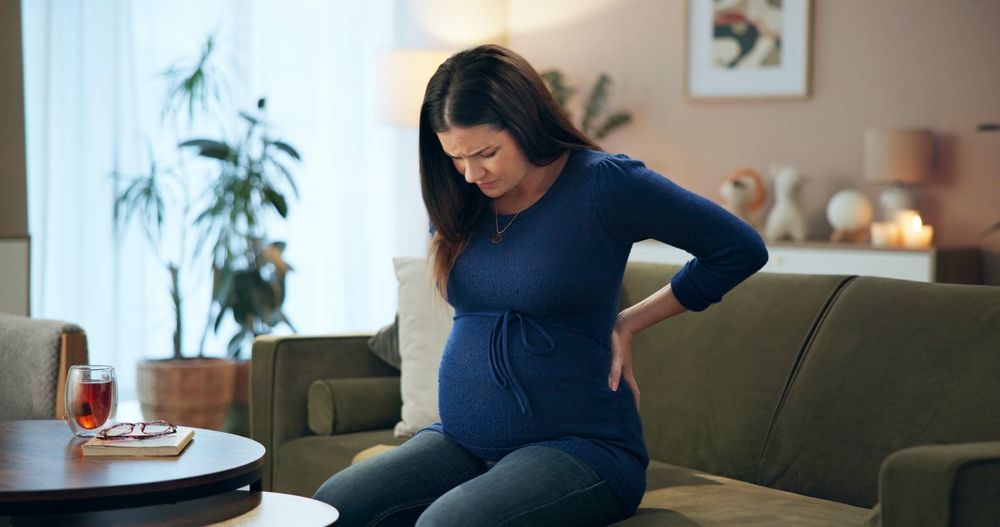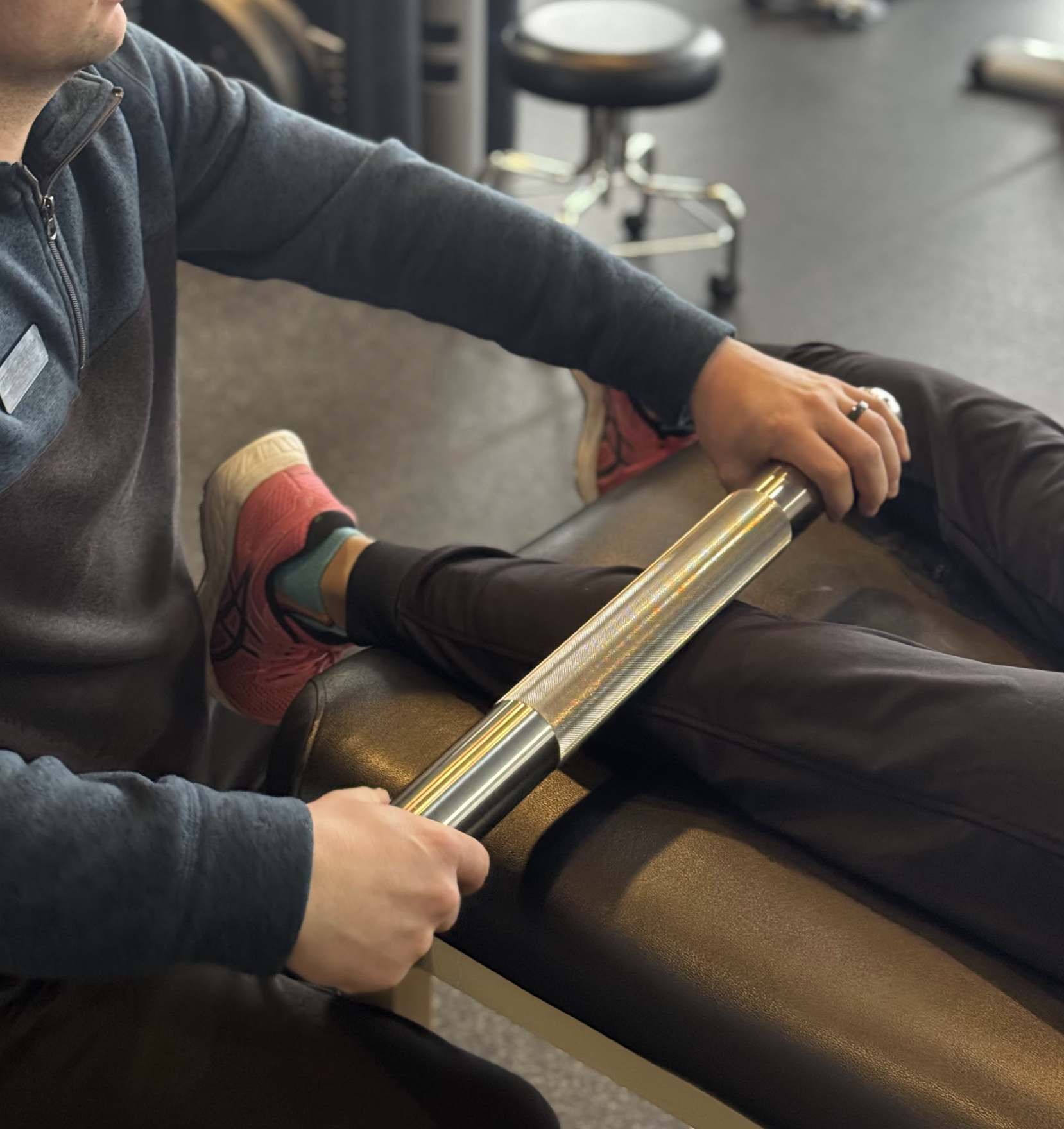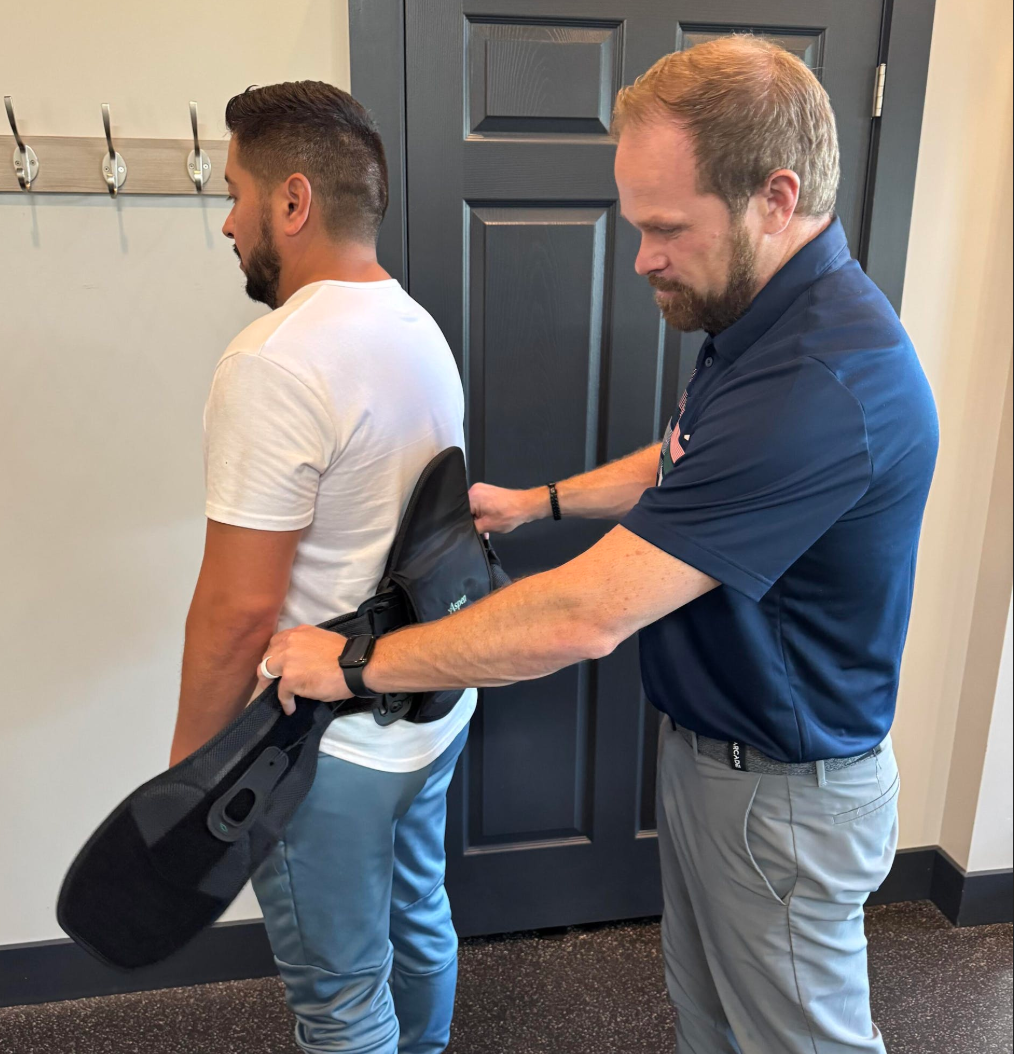Share this article:
Pregnancy places new demands on the body that can lead to discomfort, movement limitations, and changes in overall function. Physical therapy for pregnancy offers targeted care designed to help expectant mothers stay strong, mobile, and comfortable throughout each stage.
At Advanced Physical Medicine of St. Charles, our team tailors each treatment plan to meet the unique needs of pregnancy. Through gentle techniques, therapeutic exercise, and supportive guidance, we help patients manage pain, improve function, and prepare for a healthier recovery.
Alleviates Common Pregnancy-Related Pain
Back pain, hip stiffness, sciatica, and pelvic discomfort are frequent complaints during pregnancy. These symptoms are often triggered by shifting body mechanics, hormonal changes, and increased joint pressure.

Physical therapy for pregnancy provides an effective, non-invasive way to manage this discomfort. Through targeted exercises and gentle manual therapy, therapists help reduce inflammation, improve circulation, and ease muscle tension. Soft tissue techniques and joint mobilizations relieve pressure in the lower back and pelvis, while guided stretches can help reduce nerve pain.
Therapists also work to correct muscle imbalances that develop as posture shifts. When these imbalances are addressed, movement becomes more efficient and pain levels often decrease. Physical therapy offers a safe, drug-free solution for managing many of the common aches and pains associated with pregnancy.
Improves Posture and Spinal Alignment
As pregnancy progresses, the spine often adapts to the body’s changing center of gravity. This shift can place stress on the lower back, shoulders, and neck. Over time, these changes may lead to postural imbalances that contribute to fatigue, pain, and joint strain.
Physical therapy helps improve spinal alignment through guided exercises that strengthen postural muscles and encourage better positioning. Therapists focus on correcting alignment issues before they cause lasting discomfort or limit mobility. Strengthening the core, improving flexibility, and retraining muscle coordination all play a role in reducing unnecessary stress on the spine.
Better posture also allows for deeper breathing and improved circulation, both of which are important for maternal and fetal health. Restoring alignment helps the body function more efficiently, making everyday movements less taxing during pregnancy.
Enhances Pelvic Floor Strength and Function
The pelvic floor muscles help control bladder function, stabilize the core, and support the growing uterus. During pregnancy, this area takes on added pressure, which can lead to discomfort, incontinence, or a feeling of heaviness.
Physical therapy addresses these changes through targeted exercises and manual techniques that improve strength and coordination. Therapists help patients build better control, which can ease common symptoms and prepare the body for labor.
A well-functioning pelvic floor can also make delivery more efficient and reduce complications during postpartum recovery.
Supports Better Balance and Stability
Pregnancy affects balance in several ways. As the abdomen grows, the body’s center of gravity shifts, which can alter walking patterns and increase the risk of falls. Loosening ligaments and joint instability can also make everyday movements feel unsteady.
Physical therapy helps improve balance through exercises that strengthen stabilizing muscles and enhance joint control. Therapists focus on the hips, core, and legs to improve coordination and reduce compensations that lead to strain.
Better balance helps patients move more confidently and safely, especially during the second and third trimesters when changes in gait and posture become more noticeable.
Promotes Safer, More Comfortable Labor and Delivery
Childbirth places intense physical demands on the body. Preparing for labor involves building the right combination of strength, flexibility, and control. Physical therapy helps patients get ready by focusing on how the body moves during each stage of labor.
Therapists work on pelvic mobility, breathing control, and labor-specific positions to reduce tension and improve muscle coordination. Patients also learn how to engage and relax key muscle groups during contractions, which can reduce discomfort and lead to a more efficient labor. This preparation may also lower the likelihood of complications or prolonged recovery.
Reduces Risk of Pregnancy-Related Injuries
As the body adapts during pregnancy, it becomes more prone to strain and overuse injuries. Ligaments become more flexible, joints less stable, and movement patterns often change to compensate. These shifts can lead to conditions like sacroiliac joint dysfunction, round ligament pain, or even falls.
Physical therapy helps reduce the risk of injury through controlled movement training and strength-building exercises. Therapists identify areas of instability or poor mechanics and guide patients through safe, corrective strategies. Improving body awareness, joint control, and muscle activation makes daily activities like lifting, bending, and walking less likely to result in injury.
Aids in Faster Postpartum Recovery
Recovery after childbirth often involves muscle weakness, joint discomfort, and limited mobility. Many new mothers also notice changes in core strength and pelvic floor function that affect daily movement and comfort.

A personalized rehabilitation plan can make a significant difference during this stage. Therapists assess how the body is healing and introduce exercises that improve alignment, rebuild strength, and ease lingering pain. Treatment is adjusted to fit the patient’s needs, taking into account delivery method, current activity level, and any complications that may have occurred.
Addressing these concerns early may also help reduce the risk of long-term issues like diastasis recti, pelvic dysfunction, or chronic back pain.
Provides Emotional and Physical Wellness Support
Pregnancy often brings both physical strain and emotional stress. Shifting hormones, sleep disruptions, and body changes can affect energy levels and mood. Having consistent, personalized care can help patients feel more grounded and in control of their health during this time.
Working one-on-one with a physical therapist creates a space where patients feel supported in both movement and mindset. Gentle, purposeful activity can boost circulation, reduce muscle tension, and improve overall well-being. These sessions also give patients an opportunity to ask questions, build confidence, and stay actively involved in their care.
The result is a more balanced experience, where physical progress and emotional wellness go hand in hand.
Experience the difference at Advanced Physical Medicine of St. Charles. See for yourself why our patients say we’re the best choice for physical therapy and
prenatal care. Call today to schedule your consultation and learn how we can help you feel your best throughout pregnancy and postpartum recovery.
Connect with Us:











